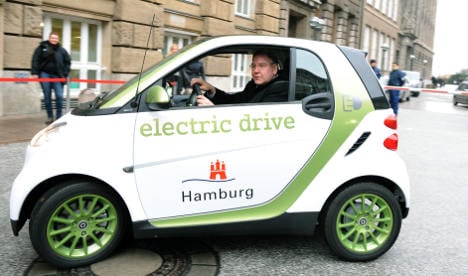China, Japan, Korea, France and the United States have all started ambitious e-car schemes, but to keep up Germany will have to invest at least €4 billion in research and development by 2013, the national platform for electromobility (NPE) reported this week.
To reach its goal of having one million electric cars on the road by 2020, Germany will have to react “quickly, unanimously and decisively,” forcing networking between the relevant industry branches, the intitative’s report said.
The environment, economy and transportation ministries are all reviewing what their role will be in meeting this challenge, said the NPE, which was founded with both industry experts and government officials in May.
“There are still several efforts necessary to bringing electromobility to Germany’s streets,” Economy Minister Rainer Brüderle said, explaining that new supply chains “far above the classic auto industry” must be established.
“We invented the auto 125 years ago,” he said. “We’re ready to re-invent it.”
But offering a government premium for electric cars as France has done is out of the question, he added, explaining that the e-vehicles must break into the market on their own merit.
Meanwhile president of the VDA national association of automobile industry Matthias Wissmann said German car companies will invest between €10 billion and €12 billion in alternative engines in the next four years.
“The industry is advancing enormously,” he said, adding that it was up to the government to match their efforts.
Transportation Minister Peter Ramsauer said that politicians would discuss new funding from the federal budget in early 2011.
With sales of some €260 billion per year, the auto industry makes up some 20 percent of Germany’s total industrial turnover and is a key export, the NPE wrote in its report, saying much depended on developing e-mobility further.
DAPD/DPA/ka



 Please whitelist us to continue reading.
Please whitelist us to continue reading.
Member comments